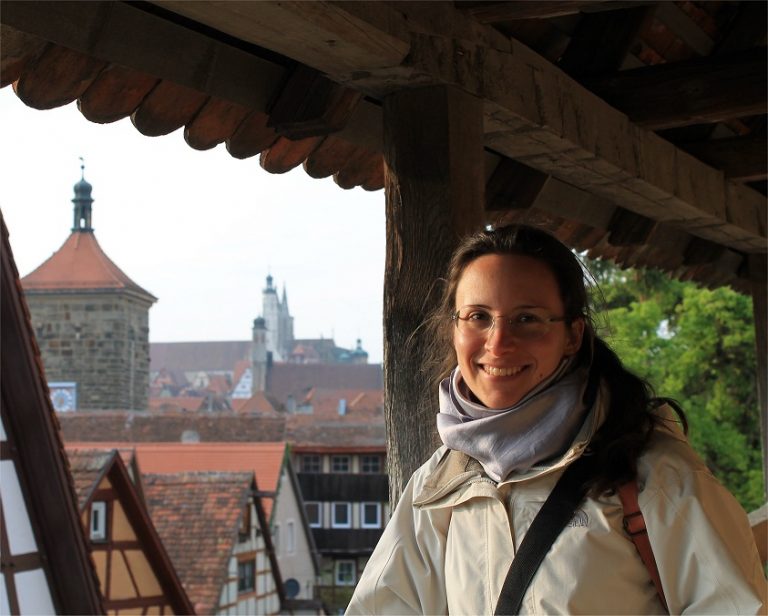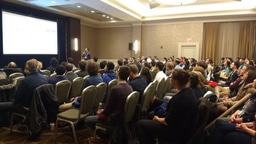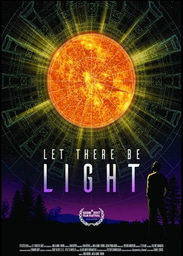Interactions: Gaia Donati
Published in Physics

What made you want to be a physicist?
 I was good at both physics and chemistry in high school, and in fact I remember being drawn between the two… My fascination for physics was stronger though: physics could explain natural phenomena all around us by means of models and theories conceived to make sense of empirical observations while also offering a predictive tool (before being replaced by its better-working extension or alternative, of course). I could relate to the relentless search for unifying principles, and I very much liked the interplay between theory and experiment (which isn’t the case in mathematics, for example).
I was good at both physics and chemistry in high school, and in fact I remember being drawn between the two… My fascination for physics was stronger though: physics could explain natural phenomena all around us by means of models and theories conceived to make sense of empirical observations while also offering a predictive tool (before being replaced by its better-working extension or alternative, of course). I could relate to the relentless search for unifying principles, and I very much liked the interplay between theory and experiment (which isn’t the case in mathematics, for example).
If you weren’t a physicist, what would you like to be (and why)?
Oh, you know, I would have gone into scientific publishing – wait, that’s what I’ve done! And now for a serious answer… Had I not taken up physics, I might have followed one of my two long-standing interests – music and photography. At some point I considered becoming a professional photographer (and join the legendary Magnum Photos agency); given that I am mildly obsessed with British, Irish and North American folk music, I did contemplate the idea of becoming an ethnomusicologist and traditional folk singer in order to study and preserve this rich musical heritage.
What is the development that you would really like to see in the next 10 years?
It would be fantastic to see physicists and biologists talking to one another ‘for real’ – collaborating on some of the challenges of our times, in other words. I am well-aware of the differences (in terms of mindset, approach to problems and communication practice to cite a few) between the two disciplines, but I am convinced that physics needs biology as much as biology needs physics. I feel that some progress has been made over the years, but there’s still a long way to go.
What’s your favourite (quasi-)particle?
My background is in experimental quantum optics, so my answer will be absolutely predictable – once on team photon, always on team photon.
What Sci-Fi gadget / technology would you most like to have / see come true (and why)?
A time machine, please. Several years ago I even bought the book “How to Build a Time Machine” by Paul Davies, which comes with some sort of blueprint for this technology. It’s a pity that I never took the time to follow the steps and see if I could build this…
What would your dream conference be like?
I recently read that scientists increasingly complain about how some conferences are becoming less and less useful – too crowded, more about showcasing one’s latest results to impress the audience than to share findings and engage in constructive discussions, too packed with sessions and events. I don’t know if this is true, but I’d say that the conferences I enjoy attending tick at least some of these boxes: a ‘human’ number of participants (not exceeding 200?), a topic not too narrow but not too broad either (which is tricky, I get that), speakers at different stages of their careers, and few parallel sessions (if any). Some meetings feature one or two days of tutorials or taught classes on top of their regular programmes; I think this is a good idea as well, especially for graduate students or for early-career researchers who might have just switched topics.
Follow the Topic
-
Nature

A weekly international journal publishing the finest peer-reviewed research in all fields of science and technology on the basis of its originality, importance, interdisciplinary interest, timeliness, accessibility, elegance and surprising conclusions.


Please sign in or register for FREE
If you are a registered user on Research Communities by Springer Nature, please sign in